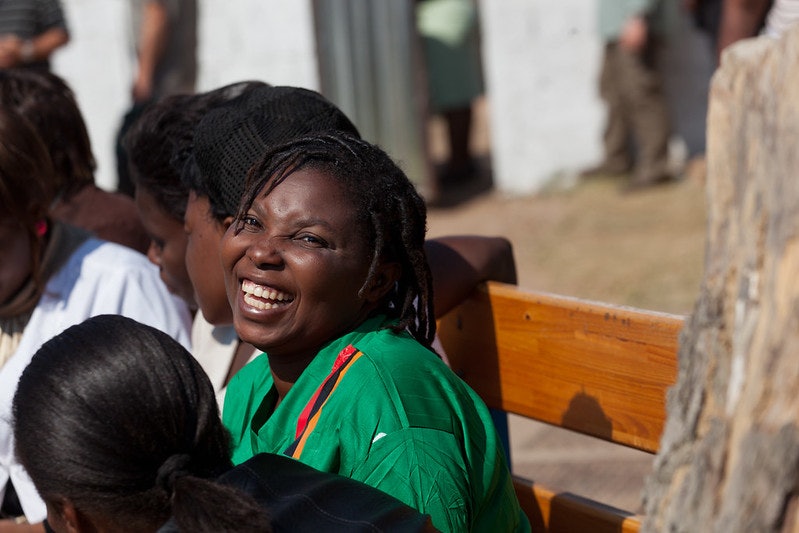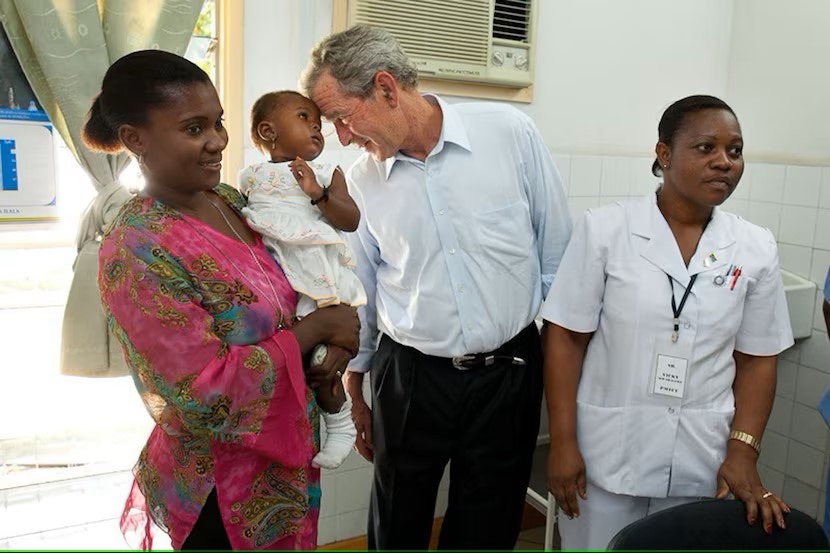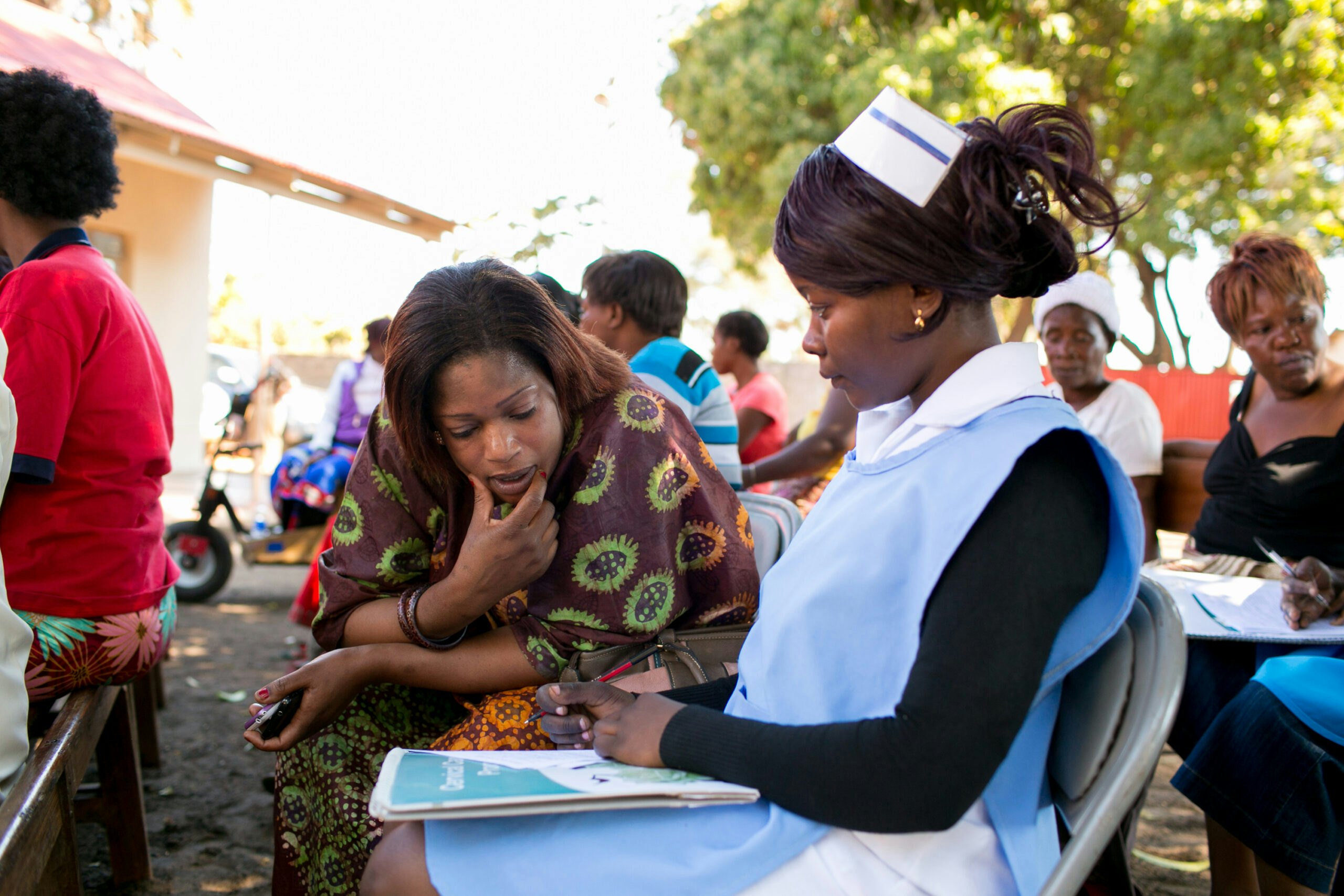Insights from Bush Institute global health expert Hannah Johnson
It’s no secret that 26 million lives have been saved and 7.8 million babies have been born HIV free thanks to the U.S. President’s Emergency Plan for AIDS Relief, or PEPFAR. This is something we should all be proud of.
What is not frequently discussed is the soft power of programs like PEPFAR. They allow the United States to partner with growing economies, prevent diseases from spreading to us here at home, and strengthen national security. As a new administration takes office and transitions occur within the halls of Congress, many policies will be up for debate. My hope is that public health remains a nonpartisan, universal priority.
The path ahead for programs like PEPFAR is straightforward. Along with Bush Institute Senior Fellow Dr. Deborah L. Birx, I outlined that path in an article for Devex. It offers concrete recommendations to ensure the program is sustainable and efficient.
About 4,000 girls and young women in sub-Saharan Africa acquire HIV every week. Let’s make sure we are giving them the same fighting chance we gave others.
Figure of the month
630,000
AIDS-related deaths have declined to around 630,000 in 2023 compared to 2.1 million in 2004, according to UNAIDS latest annual report. Programs like PEPFAR and the Global Fund to Fight AIDS, Tuberculosis, and Malaria have given countries and communities access to lifesaving antiretroviral medication, making it possible for people living with HIV to live longer, healthier lives. Despite this progress, many countries are not on track to meet the 2025 interim targets for AIDS-related deaths. The Bush Institute recently released key considerations for policymakers to ensure that countries not only meet these targets but sustain them for years to come.
Despite significant declines, the number of global AIDS-related deaths is not on track to meet the interim UNAIDS 2025 target.

Source: UNAIDS
Bush Institute insights
The U.N. General Assembly in 2016 endorsed three ambitious goals meant to help governments, civil society, and communities focus their efforts to end HIV/AIDS as a public health threat by 2030. These targets are:
- 95% of people living with HIV should be aware of their HIV status;
- 95% of people living with HIV should be receiving treatment; and
- 95% of all people on treatment should have undetectable levels of the virus in their blood (known as viral load suppression).
Progress toward these goals is dramatically uneven. The Bush Institute recently published a series of reports on the status of the 95-95-95 targets across three case studies, which examine countries that have met the targets, those that are on their way, and the countries lagging behind.
The case studies highlight the importance of data-driven, community-focused approaches to achieve the 95-95-95 targets for HIV. Success stories like Botswana and Zambia demonstrate that reinforcing political will, tailoring interventions, and decentralizing resources have significantly reduced new infections and improved treatment outcomes.
Ally updates
The Kaiser Family Foundation (KFF) released a new policy brief analyzing opportunities for PEPFAR to adopt a new co-financing policy. Programs like the Millennium Challenge Corporation (MCC) and the Global Fund to Fight AIDS, Tuberculosis, and Malaria use co-financing to ensure that countries can have more ownership over programs while maintaining the progress made alongside partners like PEPFAR for years to come.
Launched in 2004 under President Bush’s administration, MCC requires countries to meet specific criteria to receive assistance, linking funding to results. In the process, these requirements foster sustainability by holding countries accountable and instilling democratic values that support future investments.
Policy considerations in KFF’s brief include implementing mission-driven, income-tailored financing with clear, measurable results and consequences for non-compliance – key lessons from MCC’s success. As PEPFAR moves toward long-term sustainability, these models would emphasize national ownership and mutual accountability, guaranteeing success beyond initial funding.
In the news
- Bush Institute Senior Fellow Dr. Deborah L. Birx joined MSNBC’s Morning Joe to share the lessons learned from PEPFAR and the need to use data-driven programming to ensure babies born HIV-free over 20 years ago continue to live healthy lives.
- On World AIDS Day, the White House hosted AIDS advocates and survivors to remember those lost to HIV/AIDS and to celebrate the gains made by PEPFAR to end the pandemic.
- A recent article in Forbes details how challenges such as political will, uncertain support for PEPFAR, stigma, and discrimination pose a threat to ending HIV/AIDS as a public health threat by 2030.
- In late June, a drug trial found that lenacapavir – a drug currently used to prevent HIV-related infection – prevented all female participants from contracting HIV. Researchers hope that the drug may be a turning point in the battle against HIV.































